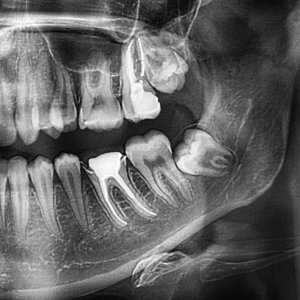When Should Wisdom Teeth Be Removed?
Wisdom teeth can cause a number of issues if not removed properly. It is important to understand when wisdom teeth should be removed and the best ways to do so. This article is designed to provide dental patients with an understanding of when wisdom teeth removal is necessary and how to go about it in a safe and effective manner.

1. Symptoms that indicate wisdom teeth need to be removed.
Wisdom teeth are the third and final set of molars that usually appear between the ages of 17-21. Symptoms that indicate wisdom teeth need to be removed include pain, swelling, infection, misalignment of other teeth and jaw problems. If you experience any of these symptoms, it is important to contact your dentist as soon as possible to discuss the best options for removal. Early detection and treatment can help prevent larger issues in the future.
2. Common age range for when extraction of wisdom teeth is recommended.
Dentists generally recommend that wisdom teeth extraction be done in the late teens or early twenties when the roots are not yet fully formed and the jawbone is still soft. This allows for a quicker, safer and less painful recovery than if it were done at an older age. In addition, younger patients tend to heal faster and experience less swelling after the procedure.
3. Risk factors associated with leaving wisdom teeth in place.
Wisdom teeth can cause a variety of issues if left in place, from discomfort and pain to misalignment of other teeth. In some cases they can lead to the development of cysts or tumors, requiring costly and complex treatments. Our ideal customer is aware of these risks and prefers to have their wisdom teeth removed before any complications arise. We provide a safe, affordable solution that will give you peace of mind and prevent future problems.
4. How long does the procedure take and what should you expect afterwards?
The wisdom teeth removal procedure typically takes anywhere from 30 minutes to 3 hours. Depending on the complexity of your case, anesthesia may be used to ensure a comfortable experience. After the procedure, you may experience some swelling and soreness; however, this should resolve within a few days. Your dental professional will provide post-operative instructions to help ease any discomfort and promote healing for optimal results.
5. What are the benefits of having your wisdom teeth extracted?
Having your wisdom teeth removed can be a great way to avoid any potential problems that may arise from having them. By doing so, you can alleviate dental pain and discomfort, as well as reduce the risk of infection and gum disease. Additionally, wisdom tooth extraction can help create more space in your mouth for other teeth to grow in properly and prevent overcrowding. Ultimately, this ensures that you maintain good oral hygiene and enjoy a healthy smile.
In conclusion, wisdom teeth removal is an important procedure that should not be taken lightly. It is important to understand the risks and benefits associated with the procedure and to consult with a dentist who can provide advice on when it should be done. For more information about wisdom teeth removal, contact Kilby Family and Cosmetic Dentistry today! For more information on wisdom teeth, check out these articles from the ADA.
